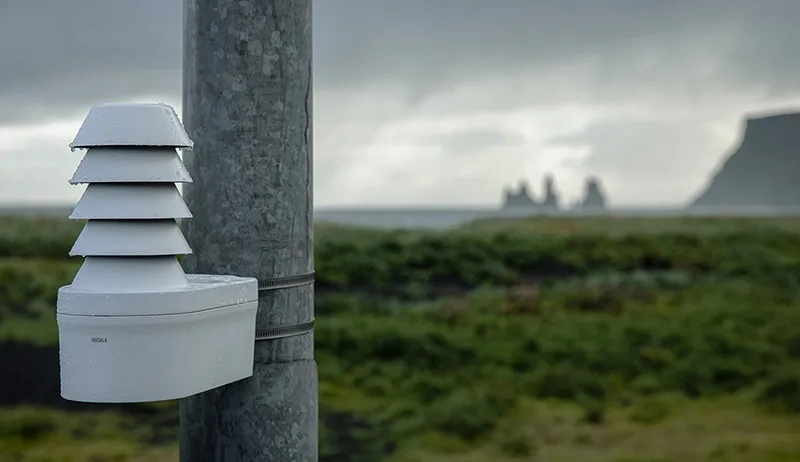
The combination of Vaisala’s TempCast and Wx Horizon solutions is an easy and affordable way to get accurate road weather measurements from challenging locations, the company says.
TempCast is a wireless, pole-mounted sensor that measures air temperature, humidity and pavement surface temperature without ever touching the pavement. With built-in connectivity and power, TempCast can be installed almost anywhere, turning an ordinary road into a smart road. It brings additional observational value from locations between existing road weather stations, that were previously hard to measure. It can also be used to build entirely new networks that were not feasible before.
TempCast – a self-powered, wireless NB-IoT unit - is the latest Internet of Things-based sensor in Vaisala’s offerings and comes with a three-year battery lifetime. Meanwhile, Vaisala GroundCast, an in-ground IoT-based sensor that measures pavement temperature from different depths, as well as the road surface state, was introduced last year.
Both TempCast and GroundCast connect to Wx Horizon, Vaisala’s subscription-based weather hazard impact portal that delivers visualisations, alerts and insights on current and future road conditions.
Vaisala says that its weather and environmental technologies are routinely used to develop creative, new applications in the areas of traffic management, winter maintenance, advanced automotive applications and beyond.









